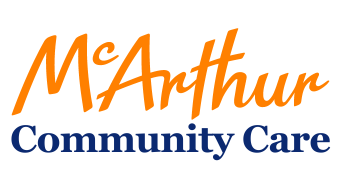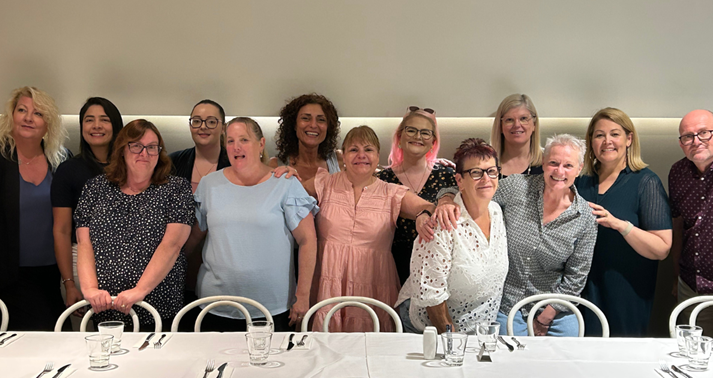Navigating the NDIS: A Step-by-Step Guide for Participants and Carers
19 April, 2021

For people living with a disability, the National Disability Insurance Scheme (NDIS) offers valuable funding and support to enhance independence and quality of life. However, navigating the scheme can sometimes feel challenging. Whether you’re a NDIS participant or a family member supporting a loved one, understanding how to make the most of the NDIS is essential. There’s often some confusion surrounding the NDIS - especially regarding eligibility, what types of support are covered, and how to access funding.
Here, we’ll explore some key details to help you better understand the program and provide practical tips on maximising NDIS resources, choosing the right service providers, and building a support network that empowers you or your loved one.
Understanding NDIS Funding and Supports
The NDIS provides various types of funding to help participants access essential services, assistive technology, and capacity-building activities. Each NDIS plan is uniquely tailored to support the participant’s personal needs, so knowing how the funding is structured is the first step toward making the most of it.
NDIS Eligibility
The NDIS is designed to support people who have a permanent and significant disability. Eligibility is determined based on several key criteria:
- Age: Applicants must be under 65 years of age at the time of applying.
- Disability: The NDIS supports people with physical, intellectual, sensory, cognitive, and psychosocial disabilities that substantially impact daily life and independence.
- Residency: Participants must be Australian citizens, permanent residents, or hold a Protected Special Category Visa.
- Support Needs: The NDIS is aimed at people who require additional assistance to live independently, participate in the community, or manage daily activities.
If you’re unsure whether you or a family member qualifies for the NDIS, contacting the National Disability Insurance Agency (NDIA) at 1800 800 110 can help. The NDIA is responsible for determining eligibility and facilitating NDIS applications.
Core, Capital, and Capacity-Building Supports
NDIS funding is divided into three main categories to address different needs:
- Core Supports: This category provides funding for essential, day-to-day needs, including personal care, community access, and respite care. Many in-home and respite services fall under Core Supports.
- Capital Supports: This funding covers assistive technology, home modifications, and specialised equipment that can support independence at home.
- Capacity Building: Capacity Building funds support activities that help participants learn new skills, build independence, and increase community involvement.
Participants can work with their plan manager or support coordinator to optimise these funds based on personal needs and goals.
Key NDIS Terms to Know
Navigating the NDIS is easier when you understand common terms such as “funded supports,” “service provider,” and “plan manager.” Funded supports are the services covered under the NDIS plan, while service providers are the agencies that deliver these services. A plan manager can handle the administration of funds, making it simpler for participants and families to track spending and ensure funding is used effectively.
Choosing the Right Service Provider
Selecting a reliable, experienced provider can make a significant difference in the quality of care and support received through the NDIS. As an NDIS participant, finding a provider that aligns with your personal goals and preferences is essential.
Why Work with an NDIS Registered Provider?
NDIS-registered providers are held to high standards, ensuring they deliver safe, professional, and person-centred services. They comply with the NDIS Practice Standards, which address critical aspects of care, including rights, advocacy, and individualised support. Working with an NDIS-registered provider means you’re accessing trained professionals who are experienced in delivering quality in-home and respite services while meeting the highest standards of care.
One participant who worked with McArthur Community Care shared, “The team truly understands my needs and provides support that feels like an extension of my family.” Choosing a registered provider with a compassionate approach can bring comfort to participants and peace of mind to family members.
What to Look for in a Provider
When selecting a provider, consider factors such as:
- Experience with the NDIS: Providers familiar with the NDIS process can guide you through funding use and help optimise your plan.
- Specialisation in In-Home and Respite Care: Providers who specialise in these areas can create a supportive environment that feels like home.
- Communication and Flexibility: The right provider should be responsive and adaptable to changing needs. Good communication can make a huge difference, helping you feel informed and supported.
Key Questions to Ask
When meeting potential providers, consider asking:
- How do you support NDIS participants with managing and tracking funding?
- What are your qualifications and training processes for support staff?
- How do you tailor respite care to personal needs and schedules?
Navigating NDIS Plan Reviews and Maximising Funding
NDIS plans are reviewed periodically to ensure they align with the participant’s evolving needs. Being prepared for these reviews can help secure the appropriate level of support.
Preparing for a Plan Review
Before a review, gather evidence that demonstrates the positive impact of your current supports. Progress reports from service providers, personal observations, and information on how support has improved quality of life can be powerful tools for ensuring your plan reflects your needs. Documenting progress also allows families to advocate more effectively during review meetings.
Making the Most of Your Funding
The Core Supports budget is flexible, which means it can cover various services like daily living assistance, community access, and respite care. A plan manager or support coordinator can help participants allocate funds across categories as needs evolve. For instance, if mobility is a concern, Capital Supports might be allocated toward assistive technology or home modifications that promote independence.
Building a Support Network
A strong support network, including family, friends, and community services, plays a crucial role in the wellbeing of NDIS participants. It fosters a sense of connection, support, and resilience.
Engaging Family and Carers
Family and carers are invaluable sources of support. By staying connected with the service provider, families can ensure everyone is aligned in the approach to care. One family shared their experience with McArthur Community Care, expressing gratitude for the provider’s “clear and consistent communication,” which helped them feel informed and supported throughout their journey.
Connecting with Community Resources
Engaging in local NDIS and disability support networks can help participants and families build connections and learn about additional resources. Attending NDIS events or workshops can also provide valuable insight into available services and updates, helping participants make more informed decisions about their care and support.
Overcoming Challenges and Advocating for Support
Challenges can sometimes arise with NDIS services or providers, and being prepared to address them is essential for ensuring ongoing, high-quality support.
Handling Issues with Services
If a service provider isn’t meeting expectations or support needs change, open communication is critical. Many providers, including McArthur Community Care, welcome feedback to ensure services remain person-centred and responsive. Participants and families can also lodge complaints or explore alternative providers if issues persist.
Advocacy for personal Needs
Advocating for your or your loved one’s unique needs can be empowering and can help ensure services are delivered as expected. Don’t hesitate to voice concerns or requests to providers, support coordinators, or NDIS representatives. Effective advocacy leads to more personalised, meaningful support that respects personal preferences and goals.
Maximising the benefits of the NDIS involves a proactive approach, understanding available supports, and finding the right service provider. Whether you’re a participant or a family member, staying informed and engaged is key to securing high-quality, compassionate care that promotes independence, comfort, and dignity.
For participants ready to find the right care provider, McArthur Community Care is here to offer reliable, compassionate support. With a team dedicated to helping you reach your goals, we provide the knowledge and experience needed to make the NDIS work for you. Check out some frequently asked questions about NDIS answered or reach out to our local experienced team to start your journey with McArthur Community Care today.
Share this Article
Related Articles
McArthur Community Care Awarded ACIS Certification and Recommended for Best Practice.
The McArthur Community Care team could not be prouder of our recent ACIS Certification and recommendation for Best Practice.
Changing NDIS Providers: How to Navigate Service Closures with Confidence
If your NDIS provider is closing services, your support does not have to stop. Discover your rights, how to switch providers with confidence, and how McArthur Community Care can ensure a smooth transition with reliable, long term support.
Learn MoreMcArthur Community Care SA Recognised for Best Practice
McArthur Community Care SA has achieved a Best Practice Rating following a recent NDIS surveillance audit, an honour awarded to only a select few providers nationwide. This milestone reflects our commitment to quality, governance, and person-centred disability support.
Learn MoreCreating a Compassionate Future for Disability Support
Empowering individuals with disability starts with equipping support workers with the right skills. McArthur Community Care advocates for quality training, respect, and inclusion to create a compassionate future for disability support.
Learn More



